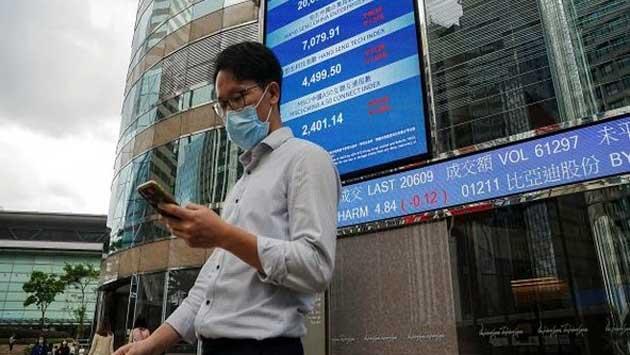Reply To:
Name - Reply Comment
 Beijing [China], October 11 (ANI): Amid the deteriorating Chinese economy, the Hong Kongstock markets continued to witness a downfall, after regular operations resumed in the country, following the end of the weeklong National Day celebrations.
Beijing [China], October 11 (ANI): Amid the deteriorating Chinese economy, the Hong Kongstock markets continued to witness a downfall, after regular operations resumed in the country, following the end of the weeklong National Day celebrations.
This downfall was witnessed after a press conference by the country's economic planning authorities, which disappointed the hopes of investors.
In Hong Kong, the day at the stock market ended with major losses of nearly 10 per cent, as the National Development and Reform Commission (NDRC), at a press conference, expressed intent to further boost market confidence but had failed to announce any specific stimulus measures for support to the falling economy, the Voice of America reported.
Additionally, in Hong Kong, the Hang Seng index traded low throughout the day. At the end of the day, the Seng stock had returned the gains it had registered before the National Day holiday, finally closing down by 9.41 per cent. Investors in China had hoped that the NDRC would roll out detailed stimulus measures at the Tuesday briefing.
According to the VOA report, Chin-Yoong Wong, a professor of economics at the University of Tunku Abdul Rahman in Malaysia, stated that the NDRC's target issues are "very to the point but insufficient in implementation" because the NDRC has not proposed precise and feasible measures, and the scale of implementation is unclear.
Wong also added that much of what has been promised by the NDRC in the recent briefing included spending plans that were already in place "rather than additional fiscal stimulus for China's economic downturn.".
He claimed that the NDRC may have talked a lot about boosting consumer confidence but still has not issued specific and practical policies to achieve that, which had left shareholders to question whether the briefing will be backed with on-ground action in China.
Liu Meng-Chuh, a director of the First Research Division at the Chung-Hua Institution for Economic Research in Taipei, said, "China's favourable policies are not so strong. On the other hand, the U.S. economy is not so bad, so maybe much international hot money has begun to flow back (to the US)."
Tsai Ming-Fang, a professor of industrial economics at Tamkang University, stated that China's foreign relations are not improving and have caused foreign trade issues that are difficult to solve.
Tsai added that the stimulus measures in the past two weeks are not designed to revive the economy but to beautify the data to achieve the economic growth target of 5 per cent this year. This provoked some shareholders and even foreign investors to liquidate their stock positions and take profits, the VOA report added (ANI)